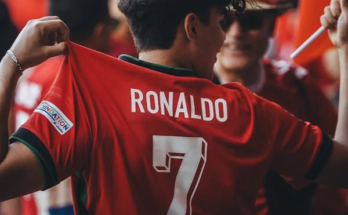Spanish La Liga Oveview
La Liga, officially Campeonato Nacional de Liga de Primera División, is sometimes called La Liga EA Sports for reasons of sponsorship. It is Spain’s major professional league of football. Established in 1929, it stakes its claim on being one of the world’s most venerated leagues and is among the most followed in terms of the number of fans, popular for its technical quality, some intense rivalries, and several of the most iconic football clubs in the world.
Structure and Format
La Liga features a total of 20 competing teams that enter into a round-robin contest where each one plays 38 matches-one at home and another away against each other. A win earns a team three points, a draw earns one point to either team, and a losing team earns no points. A champion is declared at the end of the season. If points are tied at the end of the season, then the results of matches head-to-head and goal difference would determine the ranking order.
The bottom three teams in the standings are relegated to the Segunda División, while the top two teams from the Segunda División, along with the winner of a promotion playoff, are promoted to La Liga. This promotion and relegation system ensures a competitive balance and gives smaller clubs opportunities to rise to the top tier.
Notable Clubs
La Liga is the home for some of the most storied and weighty successful football clubs around the world. Among those are:
Real Madrid: Most popularly called “Los Blancos,” Real Madrid has written some of the biggest pages in football history. More than record numbers of UEFA Champions League titles, a number of La Liga championships make this club stand out. The most iconic stadium, Santiago Bernabéu, serves this phenomenal football club to call its home ground in the city of Madrid.
FC Barcelona: “Barça” stands for attacking football and has an impressive record of domestic and international success. Camp Nou, their home stadium, is one of the most amazing, largest, and famous stadiums around the globe.
Atlético Madrid: traditionally considered as the third giant in modern Spanish football, Atlético has historically displayed resilience and discipline under long-serving manager Diego Simeone. The club has a home in the state-of-the-art Wanda Metropolitano Stadium.
Not limited to Seville FC, Valencia CF, and Real Sociedad, however, but many are committed to the history and competitiveness contributed to the league.
Historical Importance
The history of La Liga has been packed with legendary players and bittersweet moments. Since the time of inception, it has attracted some of the greatest ever jewels of football, such as Alfredo Di Stefano, Johan Cruyff, Zinedine Zidane, Cristiano Ronaldo and Lionel Messi. Besides their fame, these players made the world marvel at their individuality and glory and created a global profile for this league.
By The Rivalries The feature that defines La Liga more than anything else probably is its intense rivalries. Among all of them, perhaps the most famous in the world is the clash between Real Madrid and Barcelona known as “El Clásico.” Millions take note of matches like this because they portray a sporting competition in actuality but also cultural and political tensions of the different regions of Spain.
Method of Playing
La Liga has been established as a very technical and possession-oriented method of play. It is characterized by creativity and tactical intelligence where such players have the flair of providing imaginative football rather than the physical demand made in certain leagues. Thus here, there exists a fertile ground for attackers and playmakers.
International Success
Another element of Spanish clubs’ domination is the host of other competitions that surpass the domestic ones. Real Madrid and Barcelona boast two of the most successful records ever in UEFA Champions League history. Sevilla FC has also had some glory in the UEFA Europa League, where it holds the all-time record for most titles in that competition.
It should go without saying that la Liga has played its part in the glory that was the Spanish national team. In that golden period from 2008 to 2012, which saw Spain crowned champion of Europe twice and the FIFA World Cup once, much of that golden chapter was based on Barcelona plus Real Madrid players, such as Xavi, Iniesta, Iker Casillas, and Sergio Ramos.
Economic Impact
La Liga contributes a lot to the economy of Spain; it brings in several billion euros each year through different revenue sources, such as television rights, sponsorship, ticketing, and merchandising. It also expanded its international reach through broadcasting deals; currently, matches are aired in more than 180 countries. Global fans engage significantly on social media and other platforms, making it much more commercially successful.
Challenges and Controversies
Like all major sport leagues, La Liga has also witnessed several events leading to challenges. Financial inequality among clubs is a major recurring problem. The football franchises have always depended on these massive streams of income from Real Madrid and Barcelona. It puts most other smaller clubs into troublesome competition.
In recent years, La Liga has resorted to several other solutions to try and come to terms with those financial imbalances, many of which have included agreements over sharing revenues and the use of salary caps. However, arguments still surround the fair distribution of all resources and the governance of the league.
All of these controversies have also been seen in such things as allegations of match-fixing, disputes over rights for broadcasting, and the absence of big players like Lione from games.
Future Scenarios
La Liga is a league that develops with the evolution of football in the present day. The integration of technology like the Video Assistant Referee (VAR) to enhance officiating was within its confines. To expand its footprints onto global soil, there are matches and events from other countries, partnerships with broadcasters and brands across the world, etc. Emerging stars like Vinícius Júnior of Real Madrid and up-and-coming talents from Spain’s numerous academies promise to make the league more exciting as well as competitive. In addition, the investments the smaller clubs make into youth development and infrastructure hold the potential to even out the playing fields as far as legacy giants are concerned



